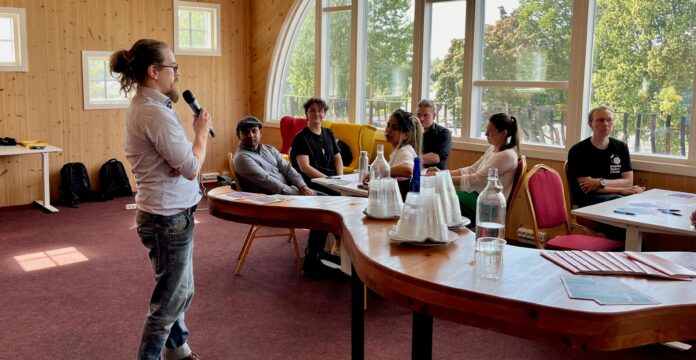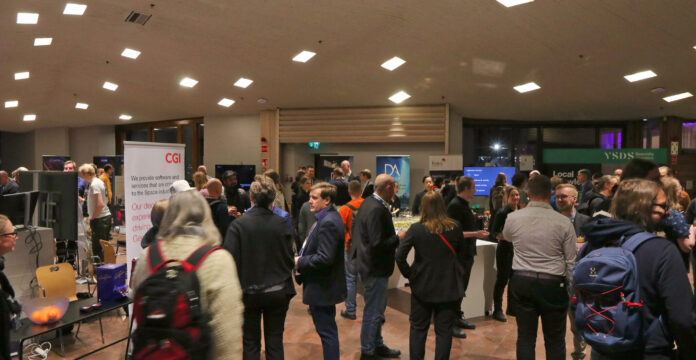There is a lot of talk about privacy these days. One may say that the world has grown larger and become more difficult due to the measures we are taking to protect our data. The drivers of privacy and overall cyber security are fascinating to think about.
Firstly, stories of large-scale personal information leaks are hard to ignore when they are extensively covered in the media. Secondly, the General Data Protection Regulation (GDPR) has made Internet use and website browsing unpleasant and disgruntling to the ‘flow seeker’ to say the least. And then thirdly, who can forget that ugly notice on the right-hand screen of your new laptop stating that your “…Security software has expired…” and that “…you are no longer protected…”?
What is it that we are really concerned about?
Protection money, cryptic privacy statements (or ‘trade-your-soul for access to this website and its services’), and phones that like to listen to you while you’re on your lunch breaks, don’t really sound like the ingredients for an ideal world. And, are certainly not a good prognosis for a utopian digital future.
But, a part from these obvious turn-offs, what is it that we are really concerned about? And, or, who is it that we are really threatened by? Despite circulating knowledge about the surveillance economy and how big (and smaller) tech are commercially exploiting our data, and perhaps an even deeper-seated fear that one day the robots will take over, there do not seem to be too many individuals used as the face of privacy concerns. In fact, online and mass media frequently report on consumer discomfort in corporations and other organisations knowing too much about them. One fairly recent article in The Fintech Times (Clarke, 2021) reports on how almost half of all consumers fear that their privacy is compromised by their increasingly expanding digital footprint.
Certainly, risk and vulnerability to the theft of assets as well as fraud cause persistent trepidation. And, if you were around during the 1990s for the release of the Sandra Bullock movie, The Net (directed by Irwin Winkler, 1995), then you might have had second thoughts about engaging in online spaces to begin with.
Stop worrying about privacy and start worrying about identity
The idea of one’s identity being hijacked certainly isn’t a pretty one. In fact, Wired contributor Lawrence I Lerner (2018) warns us to stop worrying about privacy and start worrying about identity. Interestingly, rather than ‘faking it’ through the Net with pseudonyms and avatars, Lerner encourages us to:
- live our lives and representation through our values and define them;
- be authentic – don’t turn our voices into marketing constructs;
- practice social listening – or techno-social ‘listening’, be in tune with the data representing you;
- be aware of and identity our social network – choose your company well, as they reflect who you are;
- manage our identity – don’t be defensive, just be careful to release thoughtful information; and
- curate our data privacy – establish game rules for how, what and when we disclose particular information.
The reasons for this being that even if someone or something is callous enough to hijack your identity for your ruin, through your persistence, genuineness and quantity you may survive with adequate proof and witnesses to testify who you are, and who you are not.
Previous experience matters
Yet, once again I ask – what or whom are we afraid of? Silly question? Particularly since I have just stated a few good reasons…. Just think for a moment… Have you ever been victimized? If not, maybe it is the corporations and robots that might give you the eeries at night. If you have, was it an individual or group? If it was a group you may have several demon-faces in mind. If it was by one, then the demon may be one individual devil.
Studies have shown that females suffer higher rates of victimization and bullying (Craig et al., 2009) – physical or cyber. Furthermore, victims of stalking and privacy invasion by partners, friends and acquaintances are unsurprisingly more worried about privacy matters than those who have not been (Jerin & Dolinsky, 2001; Logan, 2020; Masur & Trepte, 2021). No doubt, there is a high likelihood that those who have been personally targeted and victimized will personify their predators more than those who have not been.
Feeling BUGGED? Having a story?
Our multidisciplinary Academy of Finland project, Emotional Experience of Privacy and Ethics in Everyday Pervasive Systems (BUGGED), explores these questions and more. Just who, what and how people experience the networks of privacy, through their imagination and body, are what we are interested in unravelling.
Call to action: If you have a story, concern or simply have overlapping interests, please do not hesitate to contact me via rebekah.rousi@uwasa.fi. Let’s chat!
Rebekah Rousi
A writer works as an Associate Professor (tenure track) at the School of Marketing and Communication and at Digital Economy Research Platform




